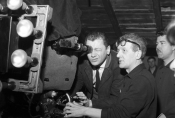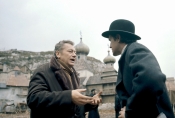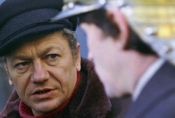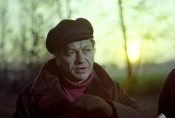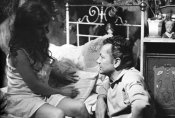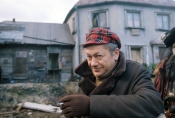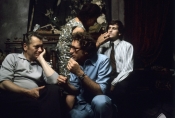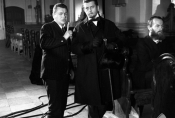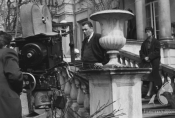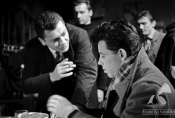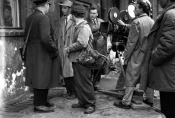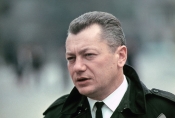Wojciech Jerzy Has
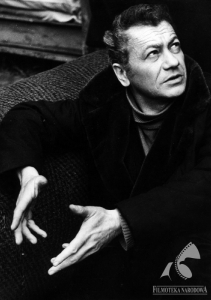
Film director, screenwriter and teacher. He was born on April 1, 1925 in Kraków and died on October 3, 2000 in Łódź. He studied at the Academy of Fine Arts in Kraków. After completing the Essential Filmmaking Course in Kraków (1946), he began working at the Warsaw Documentary Film Studio. In the years 1951–1956, he worked in the Educational Film Studio in Łódź, making documentaries as well as educational and instructional films. In 1955, he joined several film studios: first "Syrena", then "Iluzjon" and since 1958 – "Kamera". From 1981 to 1987, he was an artistic director of the "Rondo" Film Studio. In 1974, he was employed at the Directing Department of the State School of Film, Television and Theatre in Łódź, serving as the dean in 1989-1990 and as rector in 1990-1996. He was also the head of the “Indeks” Studio which operated at the Film School.
As a director, he began with documentary shorts as well as feature and educational films. The most important include: Ulica Brzozowa/Birch Street (1947), co-directed with Stanisław Różewicz and especially Moje miasto/My Town (1950), a subjective portrait of the land of childhood, imbued with lyrical nostalgia. Though the film was completed at a time when socialist realism was the mandatory creative method, there is not a trace of it to be found in Has’s film. The deliberately unfocused cinematography by Olgierd Samucewicz and the diffused lighting make the film more dream-like than realistic. It is full of antiques and knick-knacks, in a word – everything that would later be his trademark in his full-length films, and what critics dubbed "the junkyard of master Has”.
In 1957, he made his first feature film Pętla/The Noose, based on the well-known short story by Marek Hłasko; it is without doubt one of the best debuts in the history of Polish film. The haunting story of the last day of an alcoholic, features all the principal themes of Has’s cinema. The inevitable passage of time, the fragility of human existence – trademarks of all his films. Has’s cinema often draws on literature. His best films are adaptations of interesting and often outstanding literary works, to name a few: Pożegnania/Farewells (1958, FIPRESCI Award at Locarno festival) based on Stanisław Dygat’s prose, Jak być kochaną/How to Be Loved (1962, Prize in San Francisco, Golden Duck) by Kazimierz Brandys, Rękopis znaleziony w Saragossie/The Saragossa Manuscript (1964, award in San Sebastian) by Jan Potocki, Szyfry/The Codes (1966) by Andrzej Kijowski, Lalka/The Doll (1968, prize in Panama) by Bolesław Prus, and Sanatorium pod Klepsydrą/Hour-Glass Sanatorium (1973, award at Cannes) by Bruno Schulz. In his late films, he reached for foreign literature: Nieciekawa historia/An Uneventful Story (1982) is based on the short story by Anton Chekhov, Osobisty pamiętnik grzesznika przez niego samego spisany/Memoirs of a Sinner (1985) – an adaptation of James Hog’s text, and The Tribulations of Balthazar Kober (1988) was inspired by Frederick Tristan. Has’s cinema is characterised by visually stunning set designs, attention to the composition of each frame, play with inanimate objects, and the outstanding performances of the actors.
He was awarded the Commander's Cross with Star of the Order of Polonia Restituta (1998). He was also honoured with the Polish “Eagle” Film Award for lifetime achievement (1999) and the title of Doctor Honoris Causa of the State School of Film, Television and Theatre in Łódź (title awarded posthumously).
Jerzy Armata
Selected filmography
-
1957
NOOSE
-
1958
FAREWELLS
-
1962
HOW TO BE LOVED
-
1964
THE MANUSCRIPT FOUND IN SARAGOSSA
-
1973
THE HOURGLASS SANATORIUM
